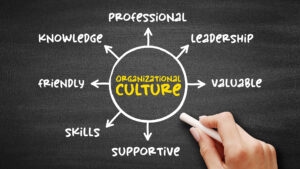Are you exploring how to unlock the full potential of Millennials and Gen Z within your company? One way to achieve this is to lead as a coach (intentional coaching), except that this is not only about measuring performance. It is about empowering them to help them thrive, encouraging curiosity, and fostering relationship building.
Strategies for Millennials and Gen Z
The biggest challenge today is that leaders continue to apply the Industrial Age control models. They do not tap into the highest genius, motivation, and talent of their people. A poll by Gallup showed that about 54% of Gen Z employees are disengaged. Addressing this disengagement requires changing the old leadership mindset and using strategies like recognition, learning opportunities, and purposeful impact. Let us explore these strategies in more detail:
1. Open and Transparent Communication
While Gen Z and millennials have experienced lots of life changes, they do not have the resilience to effectively move through these. Leaders can help them develop resilience and assuage their FOMO through clear communication on how they can do their jobs well, comprehend their impact, and the next steps. Transparency about why decisions are made and not simply knowing about the decisions is required. Leaders must be open about organizational goals, team performance, and other challenges to develop commitment and trust. Fostering a culture where feedback is a two-way process ensures millennials and Gen Z feel heard and respected, which increases engagement and ownership.
2. Set Clear Expectations
The new generation prioritizes clarity and ambiguity is disengaging and leads to poor performance. Leaders must set clear expectations about deadlines, roles, and outcomes to ensure all their team members deliver their best performance to achieve the desired goals. Clarity makes people feel secure in their responsibilities and better equipped to deliver meaningful outcomes.
3. Robust Onboarding and Continuous Learning
Millennials and Gen Z are self-driven learners and thrive in environments where knowledge is encouraged and easily accessible. Providing continuous opportunities to help them develop new skills, cross-functional tasks, mentoring, and curated digital resources is important. Encouraging and fostering a coaching culture to help people develop agility, capability, and confidence is beneficial.
4. Prioritize Accountability, Autonomy, and Trust
While the new generation desires autonomy in their work, they also expect a robust base of accountability. Leaders are expected to clearly define the why and what, but give their people the freedom to determine the how. For accountability and autonomy, trust is essential as it drives innovation and a sense of ownership. An organizational culture based on high accountability and trust fosters strong performance, confidence, and discipline.
5. Regular Check-ins
Gen Z and millennials prefer ongoing two-way communication instead of irregular and sporadic performance reviews. Consistent and short reviews, like weekly one-on-one discussions, allow leaders to provide feedback, recognize contributions and achievements, and ensure timely corrections, if required. Additionally, such regular conversations reinforce the team members’ belief that their leaders are genuinely interested in their progress while being open to new and innovative ideas. Regular check-ins also bring more clarity, support accountability, and deepen the collaboration between leaders and their people.
Have you thought about a manager as a coach? Leaders as a Coach is an excellent way to increase engagement of the new generation. This leadership style emphasizes development, guidance, and support over the traditional command and control style. A leader as a coach training program offers key skills to help people manage millennials and Gen Z. Some skills offered by these programs include:
- Active Listening: Understanding the team members’ concerns and perspectives
- Constructive Feedback: Offering actionable, regular, and specific feedback that encourages the development of others
- Delegation and Empowerment: Encouraging people to assume new opportunities and make informed decisions
- Goal Setting and Support: Helping team members to set meaningful goals and offering the support needed to achieve these goals
- Growth Mindset: Encouraging a belief through continuous improvement and learning
- Individualized Approach: Recognizing that each person is unique and offering tailored solutions to meet their specific requirements
- Technology Integration: Using digital tools and platforms to improve communication, collaboration, and learning
Ready to take the next step? Check out our leadership coaching program today to increase engagement and connect with millennials and Gen Z, and become a game-changer.





